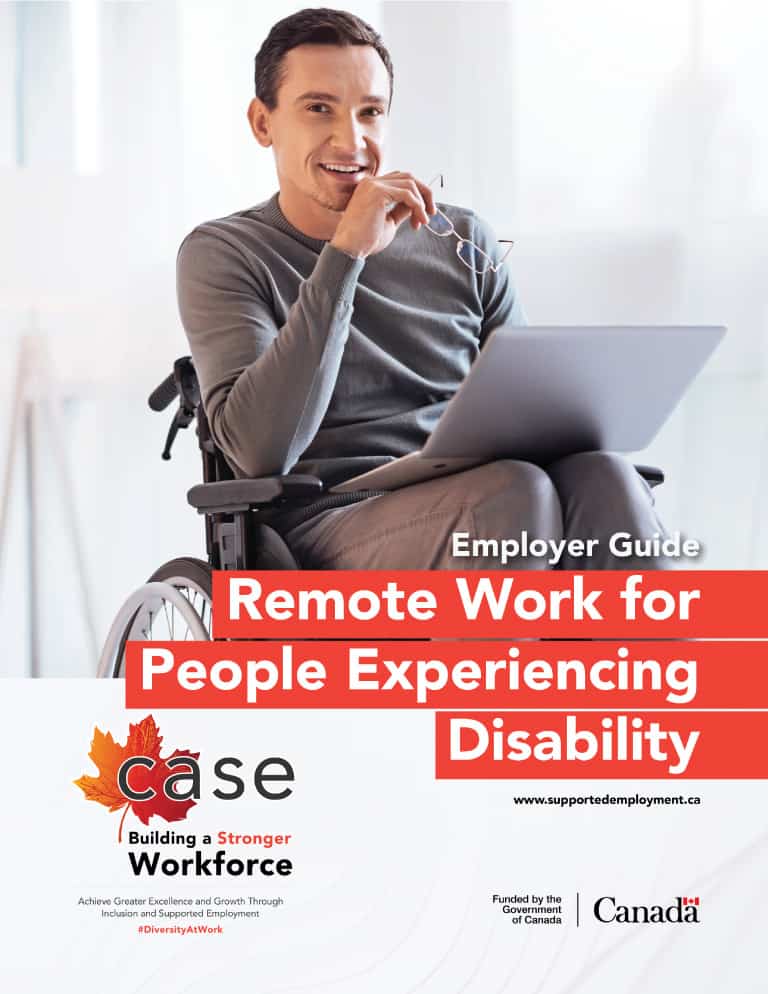Remote Work Employer Guide
The COVID-19 pandemic has made virtual work more accepted and acceptable.
The pivot away from traditional workplace structures has encouraged businesses to adopt new technologies and become more flexible and adaptable.
This virtual landscape brings the potential to improve employment opportunities for people experiencing disability. When the essential functions of a job can be performed remotely, strong work-from-home protocol is valuable for your business—not just in times of pandemic-related restrictions.
Embracing this new reality can grant your business access to an extensive talent pool and valuable new perspectives. Proactively setting remote work-from-home policies will ready your workplace to meet reasonable accommodation requests from employees experiencing disability, or from any employee facing exceptional circumstances at any time.
For all its ups and downs, remote work is going to be with us long after COVID restrictions ease. This is the time to make sure it’s done right, with the proper accommodations, thoughtfulness, and supports.

Sign up below to download our free Remote Work Employer Guide
Sign up here to get our Remote Work Employer Guide, designed to offer guidance around remote work policy development and provide practical advice to consider when employing a person who experiences a disability to work remotely.
Inclusive employment is good for business and the Canadian economy
- Many job-seekers with disabilities are highly educated
- Employees with disabilities have higher morale, satisfaction, and engagement scores.
- Retention rates of employees with disabilities are higher, saving recruiting and training costs.
- Employees with disabilities are more likely to follow safety directions and protocols than able-bodied employees.
- The number of Canadians living with a physical disability that impairs their mobility, vision, or hearing will rise from 2.9 million to 3.6 million over the next 13 years, a pace of growth nearly double that of Canada’s overall
- Improvements to workplace access would allow 550,000 Canadians with disabilities to work more, increasing GDP by $16.8 billion by 2030.
- The increase in labour availability would lift the income of people with disabilities by more than $13.5 billion.
Source: Widespread Economic Benefits To Be Gained From Making Workplaces More Accessible For People With Disabilities, Conference Board of Canada

Newsletter
Sign up for our e-newsletter and stay current with all the latest from CASE and supported employment work across Canada and beyond. You’ll also receive our latest promotions and offers. We will not share your email address with any third-party vendors. See our Privacy Policy for full details on how we protect your personal information.
Connect With CASE
Tell us about new, innovative supported employment initiatives your organization is spearheading. Please send us your ideas or advice on how CASE can better serve you.

